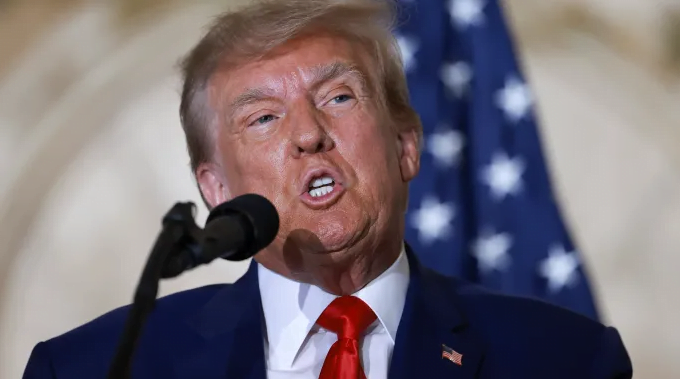In the ongoing legal battle surrounding the 2020 election, former President Donald Trump’s lawyers have presented arguments before a federal appeals court, asserting that he is immune from prosecution.
They claim that Trump was acting within his role as president when he raised concerns about alleged fraud and irregularities in the election.
The lawyers also highlight the potential consequences of the indictment, stating that it could set a precedent that would have a significant impact on future presidents and the confidence of American citizens in the judicial system.
The four-count indictment against Trump, charging him with plotting to overturn the election results, is unprecedented for a former president.
While Trump has faced indictments in both state and federal court, no other former president has ever been indicted. As he campaigns to reclaim the White House, these legal challenges have become a central focus.
The U.S. Court of Appeals for the District of Columbia Circuit is now tasked with determining whether Trump is immune from prosecution for what his defense lawyers argue were official acts falling within the scope of a president’s duties and responsibilities.
However, U.S. District Judge Tanya Chutkan previously rejected this argument, stating that the office of the presidency does not grant immunity from prosecution.
With the Supreme Court declining to fast-track a decision on the immunity question, the appeals court has taken center stage.
A three-judge panel will review the arguments presented by both sides and decide whether to affirm or overrule Judge Chutkan’s decision. The court is expected to make a ruling as early as next month.
In their latest filing, Trump’s lawyers contend that all the actions Trump is accused of, such as urging the Justice Department to investigate voter fraud claims and expressing concerns about election irregularities to state officials, are quintessential presidential acts that should protect him from prosecution.
They argue that these actions were in line with his duty as Chief Executive to advocate for and defend the integrity of the federal election.
Additionally, Trump’s lawyers argue that the Constitution prohibits his criminal prosecution for conduct for which he was previously impeached, but ultimately acquitted, by Congress. On the other hand, federal prosecutors assert that Trump violated the law by attempting to disrupt the counting of electoral votes on January 6, 2021.
They claim that he pressured then-Vice President Mike Pence to not certify the results and participated in a scheme to create fake electors in battleground states won by President Joe Biden.
YOU MAY ALSO LIKE: Colorado Supreme Court Disqualifies Trump From 2024 Ballot
Despite Trump’s lawyers suggesting that he had legitimate concerns about election fraud, multiple courts and government officials, including his attorney general, have found no evidence to support these claims.
The outcome of this legal battle will have significant implications for the future of presidential immunity and the accountability of former presidents. As the appeals court reviews the arguments presented, it will play a crucial role in determining whether Trump is immune from prosecution and whether the case will proceed to trial.
Catch up with the latest news from SurgeZirc on WhatsApp by following our channel. Click here to join.












